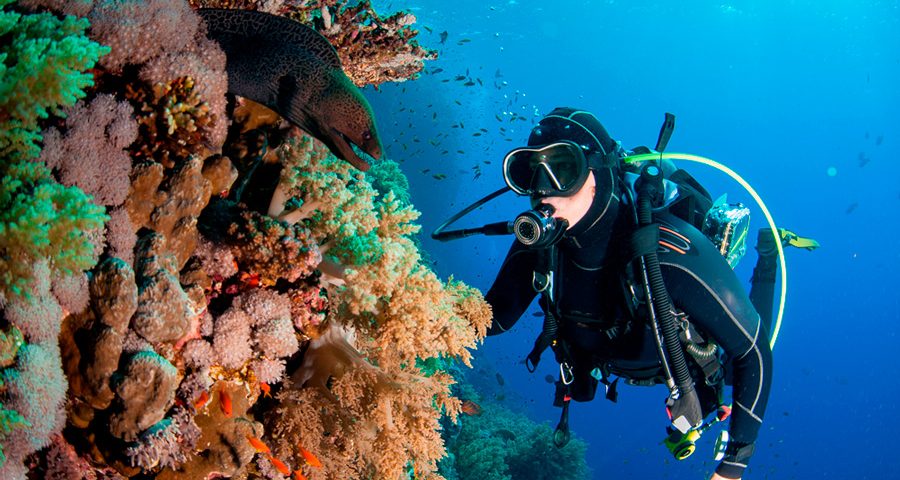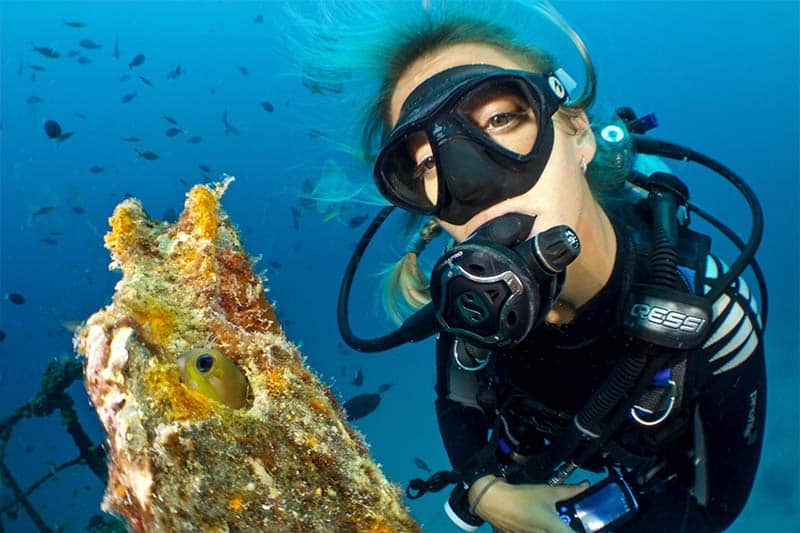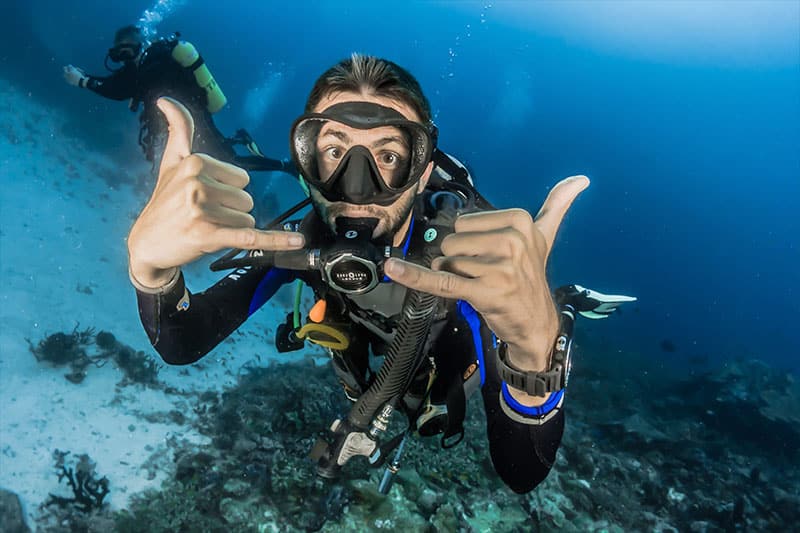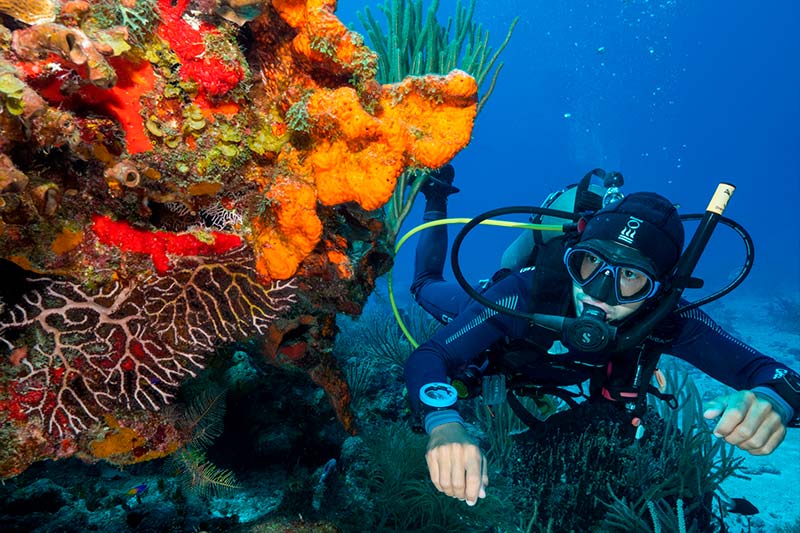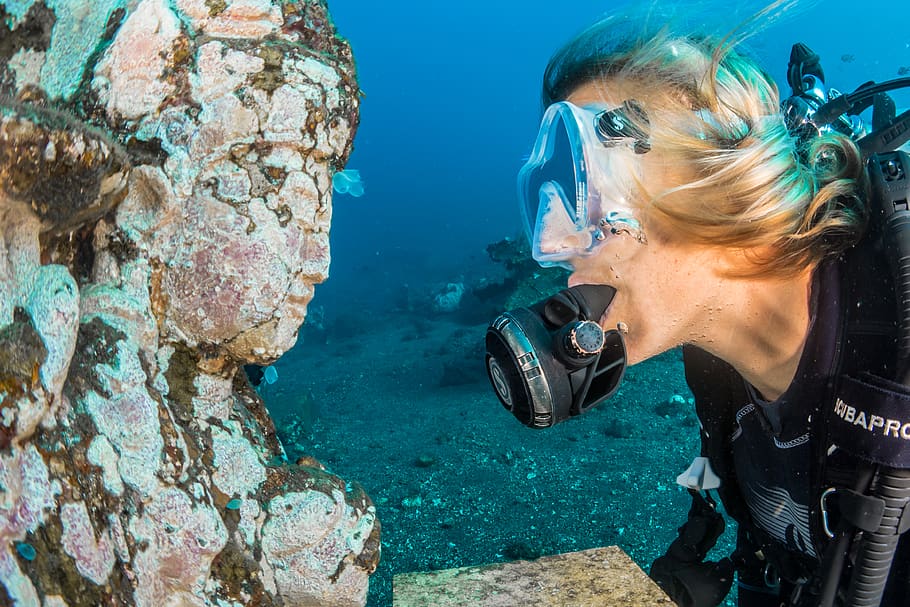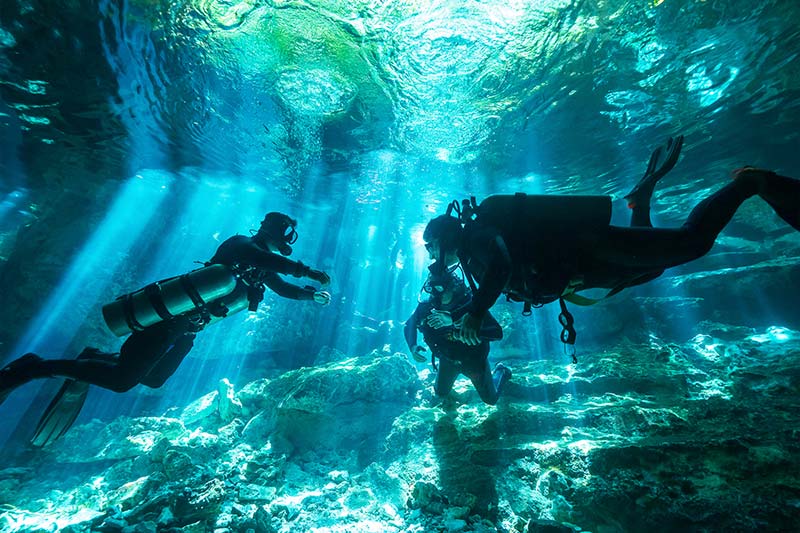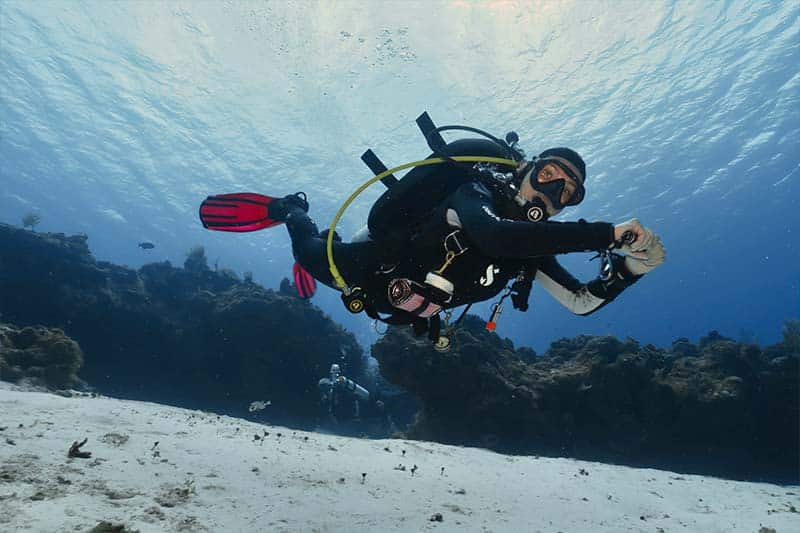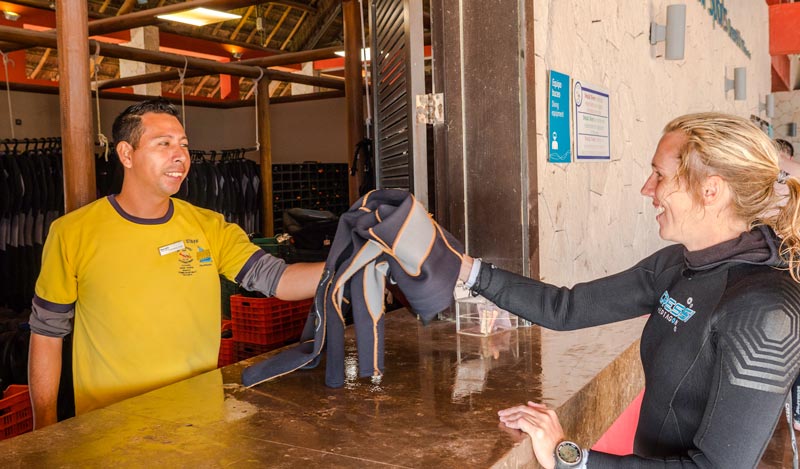3. What Is the Difference Between Technical Diving and Recreational Diving?
Nor should we confuse recreational diving with technical diving. Although both kinds of divers enjoy diving, technical diver’s experiences are much more extreme, so they require more specialization and training.
Thanks to the technical and procedural diving development, recreational diving has become very popular. In addition, it is also a very safe sport, so more and more people can enjoy it and meet the wonders of the underwater world.
Recreational diving and technical diving are two different types of scuba diving that vary in terms of training, depth, equipment, and risk.
Recreational diving is the most common type of scuba diving. Recreational divers are trained to dive within no-decompression limits, which means they can ascend to the surface without having to make decompression stops.
Technical diving is a more specialized type of scuba diving that involves diving beyond recreational limits. Technical divers are trained to use mixed gas mixtures, dive to greater depths, and make decompression stops. Technical divers also use specialized equipment.
Training and Certification:
Recreational diving: Recreational divers typically undergo basic training and certification from an organization such as PADI, SSI, or NAUI. This training covers the basics of scuba diving, including dive planning, equipment uses, and safety procedures.
Technical diving: Technical divers undergo specialized training beyond recreational diving. This training covers topics such as mixed gas diving, decompression theory, and emergency procedures. Technical divers can obtain certification from a variety of organizations, such as TDI, IANTD, and GUE.
Dive Depth and Time:
Recreational diving: Recreational divers typically dive to depths of 40 meters (130 feet) or less. They may also dive for longer periods of time, but they must stay within no-decompression limits to avoid decompression sickness.
Technical diving: Technical divers may dive to depths of 100 meters (330 feet) or more. They may also dive for longer periods of time, but they must carefully plan their dives and make decompression stops to avoid decompression sickness.
Equipment and Gear:
Recreational diving: Recreational divers typically use standard scuba equipment, such as a single air tank, a buoyancy compensator, and a regulator. They may also use additional equipment, such as a dive computer and a dive light.
Technical diving: Technical divers use specialized equipment, such as multiple gas tanks, backup regulators, and dive computers. They may also use other specialized equipment, such as a closed-circuit rebreather or a stage decompression bottle.
Complexity:
Recreational diving: Recreational diving is generally considered to be a safe activity because the risks can be minimized by following proper training and safety procedures.
Technical diving: Technical diving is a riskier activity than recreational diving due to the increased complexity of dives. Technical divers require rigorous planning and adherence to strict safety protocols to mitigate risks.
| Characteristic |
Technical diving |
Recreational diving |
| Depth |
Beyond 130 feet (40 meters) |
Less than 130 feet (40 meters) |
| Bottom time |
Scuba diver’s limits |
Within no-decompression limits |
| Environments |
Wrecks, caves, deep walls, etc. |
Shallow reefs, wrecks, etc. |
| Equipment |
Specialized equipment, such as multiple gas cylinders, backup regulators, and dive computers |
Standard scuba gear |
| Training |
Requires specialized training from a certified technical diving instructor |
Requires basic scuba training from a certified recreational diving instructor |




